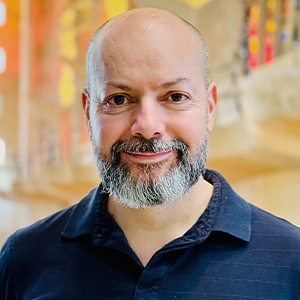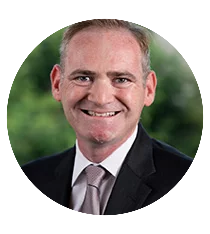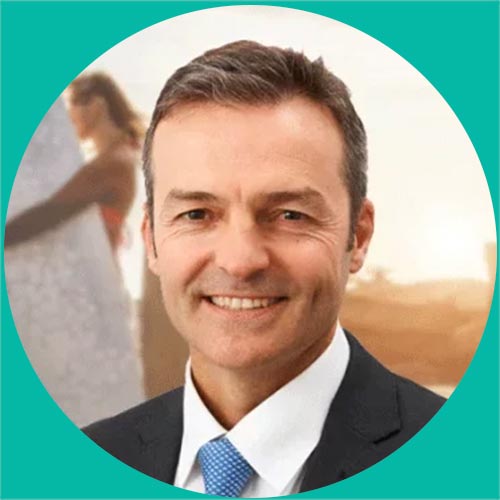Consultation skills: asking questions in healthcare consultations
We’re just getting started into our discussion of the discovery – the part of the consultation where you ask questions… questions to elicit their motives, concerns, criteria and timing. So far, we’ve covered why listening is so important, the 4 goals of the discovery, and what must be present so that sale can happen. If you missed these posts, I’d recommend reading the earlier posts to understand why we need to employ the subject of today’s post: Asking deeper and deeper questions.
What are the three levels of asking questions in a consultation?
Suppose we have a laser eye surgery prospect in front of us in a consultation named John.
We say: “John, do you wear glasses?”
Whether John says “yes” or “no”, this is just a fact question, or a first-level question. Now, because John wears glasses, is that enough of a reason to have laser eye surgery? No, it’s not. Over 50% of the population has a need for corrective lenses and could benefit from laser eye surgery. However, the vast majority wouldn’t even think about having laser eye surgery.
We say: “Do you like or dislike your glasses?”
That is a fact/feeling question, or a second-level question. John might say: “I dislike them.” Now, is because John dislikes his glasses a reason for him to have laser eye surgery? Probably not. Lots of people who wear glasses dislike them, but that’s not enough of a problem to get rid of them surgically.
We say: “Why do you dislike your glasses? How do glasses get in the way of what you most value in life?”
This is an emotional question, or a third-level question. John might say: “I can’t see well enough to drive my kids home from football games in the winter.” Or “I don’t feel that I can react fast enough in an emergency situation”, or “I may endanger my family by getting into a car accident.” These kinds of answers are often revealed when starting the question with the word “why“.
Wow! Now, is that reason enough to have laser eye surgery? Absolutely! That is what’s called a third-level, or emotional reason, why somebody would purchase.
- 1st level questions reveal facts.
- 2nd level questions reveal feelings surrounding facts (likes and dislikes)
- 3rd level questions reveal the emotional reasons for why someone would purchase – or dominant buying motives.
Hold on… I just wrote a very, very important phrase. I’ll write it again: “Dominant Buying Motive” – the DBM. If you’re printing this out, start that phrase. Underline it. Get a yellow highlighter and highlight that phrase. The DBM is the most important concept that I teach in my telephone sales training and consultation skills training workshops. We’ll get into defining the DBM in my next post…
For now, which level of questioning do you think would have a better chance at revealing the information you need in order to make a sale in a a consultation? 1st, 2nd, or 3rd?
That’s right, the third-level question. What are some third-level, or emotional reasons, why people would have laser eye surgery for example? I like to divide these emotional reasons into – a hope for gain, or a corresponding pain.
So in the case of John, his third-level, or Dominant Buying Motive for having refractive surgery would be: to keep him and his family safe. The problem, or the pain, if he doesn’t have the surgery may be: he may endanger himself and others because he can’t see well without glasses. The hope for gain is that he will keep his family safe due to his decision to see well without glasses.
Typically, a pain will be a stronger motivator than the hope for gain (or pleasure), as most people would rather avoid pain than seek pleasure.
What are some other third-level, or emotional reasons, why someone would buy your service?
The reason that this is so very important is that all too often medical sales professionals think people buy their product just because they don’t like the alternative, and they spend way too much time on the facts, without realising how people feel about the facts, and how those facts and feelings impact people’s lives.
For example, people may buy laser eye surgery because they dislike their glasses, but that may be only one of fifteen reasons that they would have the treatment. And in fact, disliking glasses isn’t a third-level, or emotional reason, that people would have refractive surgery at all.
Think about why people may dislike their glasses. It may be different from one person to the next. For one, it may be an inconvenience when engaged in sport or leisure activities, for another it may be that they feel that glasses make them look older or unattractive, for others it may be that they were teased from a very young age for wearing thick coke-bottle glasses, and others may even feel that they can’t perform at their job as well as if they didn’t wear their glasses.
So, the dislike of glasses is really a second-level reason to have refractive surgery, isn’t it? And the emotion attached to disliking glasses, is the third-level reason that someone would buy our product.
And it is the third-level reasons that we need to identify in order to make a sale in a consultation.
Why are are people buying our product or service? What are their emotional reasons? Perhaps people are buying your product for status. That is their hope for gain. If they could just have it, like all of their other friends and family have, they would feel part of the group. The corresponding pain is that they wouldn’t be keeping up with the Joneses.
When we get that information, we can reinforce this emotional or Dominant Buying Motive, all throughout the consultation.
Related Posts
Meet our Co-Founders
We’re passionate about helping leaders of high-quality, growth-minded practice owners double their practice revenue

Rod Solar
Founder & Scalable Business Advisor
For over 20 years, I’ve helped ophthalmology entrepreneurs scale their private practices. I specialise in doubling revenue within three years by offering a proven framework, hands-on experience, and a team of experts who implement what works. We take the guesswork out of growth and scale, so you can focus on delivering exceptional patient care while maximising the value of your business.
LiveseySolar completely transformed the way we were approaching this… We’ve gone from having just the dream of having a practice to having a practice up and running with people making inquiries and booking for procedures… It’s extremely pleasing. We feel lucky we connected with LiveseySolar.
— Dr Matthew Russell, MBChB, FRANZCO, specialist ophthalmic surgeon and founder of VSON and OKKO

Laura Livesey
Founder & CEO
I’m the co-founder & CEO of LiveseySolar. I’ve developed powerful eye surgery marketing systems that increase patient volumes and profits for doctors, clinics, and hospitals, since 1997.
Rod and Laura know as much about marketing surgery to patients as I know about performing it. They are an expert in the field of laser eye surgery marketing. They know this industry inside out. I believe that they could help many companies in a variety of areas including marketing materials, sales training and marketing support for doctors.
— Prof. Dan Reinstein, MD MA FRSC DABO, founder of the London Vision Clinic, UK












